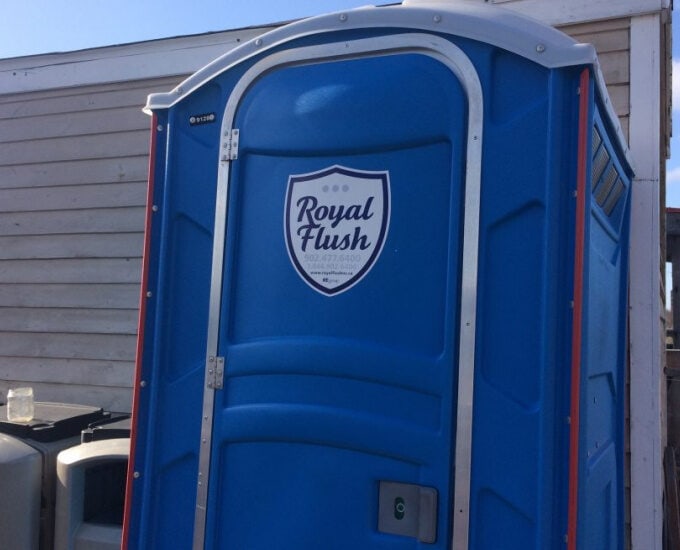
As we move past the grief, loses and changes caused by COVID-19, let us attempt to deal with whatever positive outcomes that have been produced by this pandemic. There will be many changes that are here to stay with many of our new normals requiring attention and adjustments.
There is a specific personal negative being experienced by me — and I am certain many of you — that continues to cause massive restrictions to our regular locations for relief whenever we venture a distance away from our homes: Where do we locate toilets for our calls of nature? My challenge today is to deal with that human reality with a sensitive awareness for its unpleasant connotations.
Today’s opinion is a private topic by its nature and is not intended to repulse you but to encourage us to normalize discussions regarding the common-to-all humans demand of our bodies. Let’s get rid of their stigmas; we all do them so we should acknowledge two of our bodily functions: urination and defecation.
I am not a medical person but have lived, travelled and experienced enough calls of nature to gain first-hand the many predicaments of urination and defecation. It is interesting how our bodies’ needs and functions alter as we age. There was a period of time when one knew that a toilet would be required soon but for many of us the passing of years or medical conditions have drastically abbreviated the frequency need into a “now-means-now”.
Taking that reality into the commercial world, it will be extremely unlikely to find a shopper/customer who does not need the services of a toilet when they are away from their home for any length of time. Governments and businesses want people to frequent areas, spend their incomes and support whatever services that might be available but many such organizations are blind to the natural realities that all humans will eventually need to deal with their bodily waste elimination.
It is not a business’ responsibility to provide toilets for the general public’s use. Enterprises need to focus on those who purchase their products/services and provide for those customers’ with the larger community looking after the overall toilet requirements for the general population. When we encourage and welcome people into our communities we also must allow for all of their personal needs.
A shining example of progressive and realistic planning for the calls of nature is within the town of St. Andrew’s, NB; that welcoming town has clearly-advertised, well-maintained, easily-accessible and centrally-located toilets within its downtown’s business district. (St. Andrew’s openly welcomes and looks after its shoppers’ and visitors’ natural needs as it encourages people to visit, to wander and to shop.)
Consider how we train human infants to deal with their body’s wastes with negative implications that their bodily products are dirty, disgusting, and offensive and must be dealt with as privately as possible. Those children grow into adulthood and rarely mention their elimination needs and when they do most use general terms such as washrooms, restrooms, bathroom but not toilets. Consider also the language used by most adults to refer to their bowels’ or bladders’ functions. Most people do not state defecation or urination; more crude and blunt euphemisms are commonly the norm.
My theory about the origin of our reluctance to discuss urination or defecation goes back historically to when the careless disposal of human waste influenced the introduction of diseases which resulted in millions of disease-related human deaths. Add to that reality that humans can be dirty creatures and many frown upon toilets as places to visit only as a last option. Into that scenario add that too many businesses put little, if any, emphasis into their toilet rooms regardless of the demographics of their customers.
My second theory for our tendency of mutual disgust for body waste is its smell. So as to determine whether something is a “friend or foe” to our safely/survival, humans have developed the “survival-smell test”; if it smells offensive it probably means it should be avoided. Take the avoidance tendency to human wastes and our too common exposure to unclean or unpleasant toilet areas, all resulting in many of us reacting with disgust and repulsiveness to something we all do.
Communities want people to shop locally, to travel to their locales and to enjoy their times within those districts therefore it is imperative that toilets exist for their needs. COVID-19 makes me think of available toilets when I live my home for longer-than-regular periods; what about you? If we truly want folks to come into and to move around our areas, we must also allow for their biological functions and deal with the needs of their frequent realities and a too-common question: Pardon me, where is a toilet?
Ray Bates, a former school principal and NS Community College faculty member (Ret’d), is a resident of Guysborough. Ray has been contributing his opinions to newspapers since 1998.
With a special thanks to our generous donors who make publication of the Nova Scotia Advocate possible.
Subscribe to the Nova Scotia Advocate weekly digest and never miss an article again. It’s free!




Those porta-potties are not accessible to anyone with a mobility issue or a wheelchair user. We can only hope that a business will allow someone in a wheelchair or with a cane or walker to use their washroom.